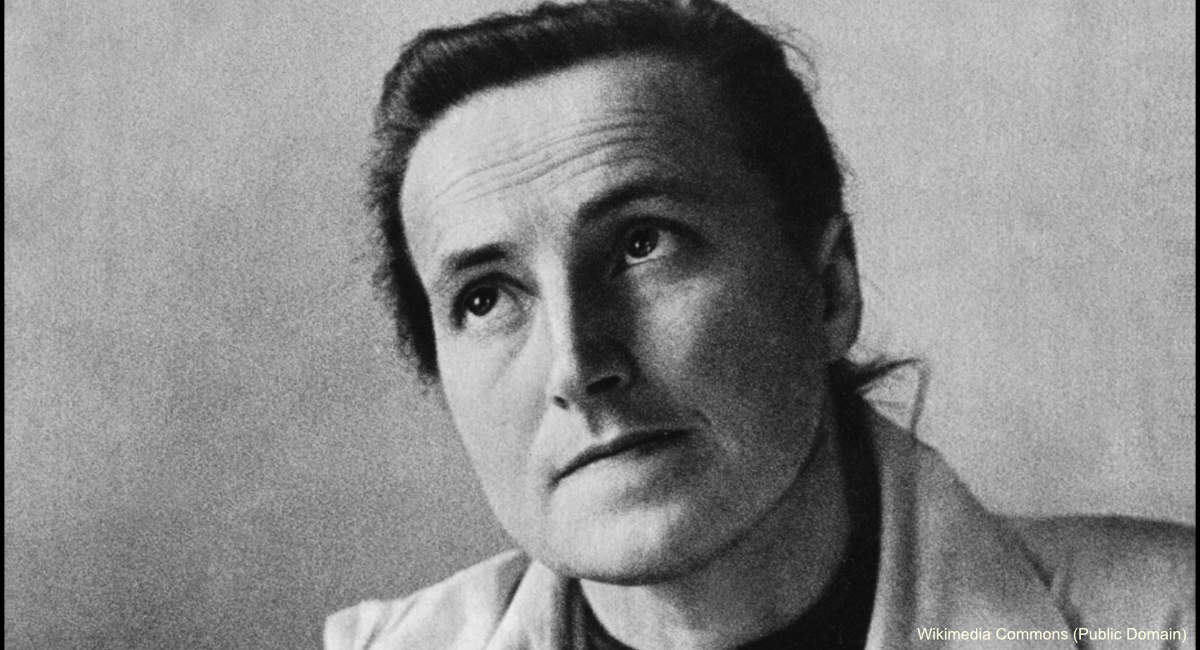Wanda Półtawska, a Polish psychiatrist, physician, and Holocaust survivor, has passed away at the age of 101. Poltawska was well known for her friendship with Karol Wojtyła… the priest who would later become Saint Pope John Paul II. She influenced many of his writings, particularly on abortion and contraception.
Półtawska was born in 1921, and at just 20 years old, was arrested by Nazis for participating in the Polish resistance movement. Półtawska was sent to the notorious Ravensbrück concentration camp, where she became one of the Nazis’ “guinea pigs,” and was subjected to human experimentation.
She detailed her experiences in the book, “And I Am Afraid Of My Dreams,” and survived after spending four years in the concentration camp. Nazi doctors cut open her lower legs and infected them with bacteria, while she was forcibly held down on a table.
“Our legs swelled up, scarlet and angry; mine was so swollen that the plaster cut into my flesh,” she wrote in a memoir. “Every time we tried to move our mutilated legs, an evil-smelling yellowish brown fluid would seep from under the plaster sheath. They no longer had to bend down to sniff our legs.”
Półtawska vowed that if she survived, she would become a doctor.
She attended Jagiellonian University in 1951, and received her doctorate in psychiatry in 1964, conducting research on children who were imprisoned at Auschwitz. Her time at Ravensbrück also made her a staunch advocate for life.
“I observed SS with pregnant women. There were no scheduled abortions so as not to slow down women’s labor. They let the children be born, and then threw them into the fire,” she said in testimony for the Lejeune Foundation. “I decided that, if I got through this, I would do everything to save the children. When you can kill millions of people, life loses its value. Until now, we have not fully understood the value of life. You cannot compare life to anything else.”
Wojtyła and Półtawska met in a confessional, beginning in 1956. They became lifelong friends, with her book “Memories of the Beskidy Hills” sharing photos of him with her family on hiking, skiing, and camping trips in Poland before he became pope; afterwards, they frequently visited him at the Vatican and at Castel Gandolfo. Her children called him “Uncle Karol.”
But Półtawska and Pope John Paul II also collaborated frequently, particularly on issues of sexuality. Półtawska was known to have heavily influenced Pope John Paul II’s “Theology of the Body,” and helped establish the Institute of Theology of the Family at the Pontifical Academy of Theology in Krakow. She ended up running the institute for 30 years.
Półtawska also notably had a link to St. Padre Pio; in 1962, she was diagnosed with terminal cancer, and was given just 18 months to live. Wojtyła, the auxiliary bishop of Krakow at the time, wrote to Padre Pio asking him to pray for her; he did, and Półtawska’s tumor miraculously disappeared. This miracle was one of several that led Padre Pio to be canonized in 2002.
One of Półtawska’s most notable works is her declaration of faith for Catholic physicians; in it, she strongly condemns abortion, contraception, euthanasia, and more. “If a person acts by their own will to negatively alter conception and bring about death, then he or she not only violates the basic commandments of the Decalogue, committing acts such as abortion, euthanasia, contraception, artificial insemination, and/or in vitro fertilisation, but rejects The Creator as well,” she wrote.
Along with the declaration, she wrote an open letter to doctors upon Pope John Paul II’s canonization in 2014, noting that he wanted doctors to do more to stand up for the vulnerable — and preborn children in particular.
“He observed the condition of the family becoming more and more corroded and defended the dignity of the human being – he spoke to everybody everywhere, and he expected assistance from the doctors – but he was often disappointed,” she wrote. “I witnessed his reaction to the news when the Polish Parliament passed the law on killing ill unborn children. He got angry – which he did very seldomly, hardly ever – he banged his fist on the table and exclaimed, ‘And where are the paediatricians?! Why don’t they defend ill children, why don’t they react?!'”
In the book “Stories about Saint John Paul II,” she wrote of how they worked together to fight back. “In 1956, in Communist Poland, the law on abortion was passed,” she said. “I, as a physician, and he, as a priest, were alarmed by this anti-life decision. And we started to work together in opposition to that law. We made every effort then to save every single newborn child, every life that was still blossoming, and we went forward from there along that path.”
When preborn children were eventually protected from abortion in Poland, she called it the victory that Pope John Paul II had longed for. And she said the only way to truly honor John Paul II’s legacy was to continue fighting for life.
“I see only one way to do so: to convert people so that they understand that every child and every person has the right to life,” she wrote for L’Osservatore Romano. “The only Lord of life is our Creator who loves His creation. I am sure that an international law prohibiting the killing of unborn children would be a ‘gift’ of humanity for this great man.”








